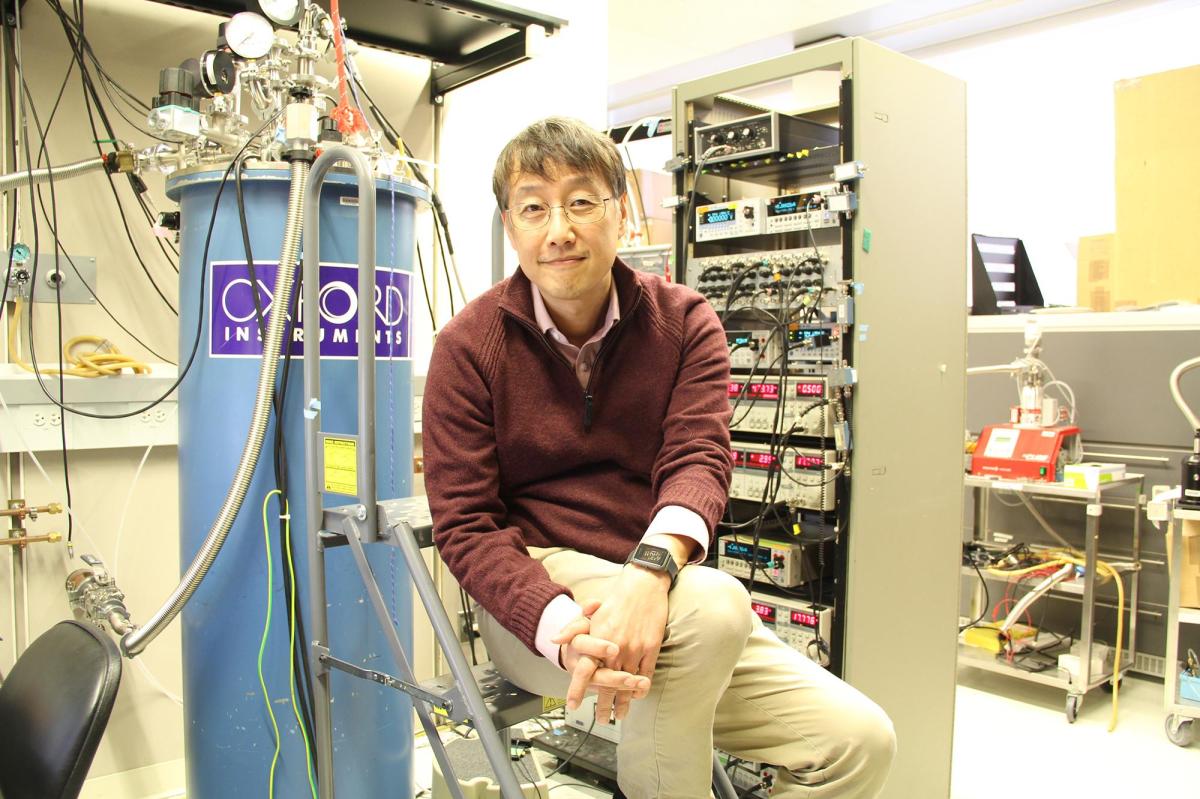Applications
 Part of the Oxford Instruments Group
Part of the Oxford Instruments Group
Expand
Collapse
With Philip Kim, Professor of Physics and of Applied Physics, Department of Physics
Our mission at Oxford Instruments NanoScience is to enable our customers to concentrate on their research objectives, safe in the knowledge that we are always here to provide full support.
That’s why service is a core part of our offering. From engineering and manufacturing to set-up, maintenance and training, we cover all the bases that support our customers run advanced technologies successfully.
In order to deliver excellent service, we regularly check in with our customers. We recently caught up with Philip Kim, Professor of Physics and of Applied Physics at Harvard University about his experience using Oxford Instruments technology and his long-standing relationship with the services team.
The first time I used technology from Oxford Instruments was almost 30 years ago when I started graduate school. I worked in the condensed metaphysics lab where Oxford Instruments provided the systems that allowed us to reach the low temperatures needed for our research so I've been a loyal customer for many years.
I now research quantum materials which, especially in electronic transport measurement, often require cryostats. We currently have four of those from Oxford Instruments - the most recent purchase was the Proteox dilution refrigerator which is now our most advanced system.
The concept of cryostats has changed a lot in 30 years. At graduate school, people often used to warn me and ask, “Are you sure you want to do extremely low-temperature physics?” Because back then that often meant spending more time operating the dilution refrigerators than focusing on the research.
So it’s great to see that cryostats like the ones we use from Oxford Instruments have become so dependable and user-friendly for my students now. The fact that we don’t need to top up any liquid helium for the cryogen free Proteox dilution refrigerator makes it so much more reliable and easy to use.
Like with any complicated system, there’s always a need for maintenance and a reliable service team. The nice thing about Oxford Instruments is that the field technicians are always on hand for any maintenance and servicing needs. One of the service centres is very close to Harvard, so they can be onsite helping us within 30 minutes of the call out, which is great in an emergency.
I’ve learnt a lot from the service technicians myself. They’ve accumulated a deep understanding of the equipment, so it’s great that my students and I have the opportunity to learn and work so closely with them.
I still remember how before I moved to Harvard about 10 years ago, I was at Columbia University, and we had a really old dilution refrigerator. Everyone else in the department wanted to retire it but I’m quite attached to legacy technology, so we brought in Nick Dent from the Oxford Instruments service team to help us recalibrate and repair it.

Philip Kim pictured with the Proteox
We spent about three days fixing the old system which was amazing. Nick was super thorough and explained everything he was doing while he was doing it. During the time we spent together, I learnt a lot about cryostats just by talking to him about the system and how we could keep it going as long as possible at a high standard. We’ve now worked with Nick for over 10 years, so he and his team really understand our research needs.
For me, what makes Oxford Instruments and the equipment stand out is that they always push the boundaries, whether that’s pushing the capabilities of the systems a little bit further, or customising the technology for each client. And that also shines through in their service and maintenance offering, just as each system is personalised, so is the service approach.
Oxford Instruments has been at the forefront of cryostat technologies for a long time. Their equipment has better performance and reaches lower temperatures while remaining user-friendly. They’re very open to discussing our research requirements, so the purchasing and installation process is collaborative.
Especially with the new Proteox in our research labs, there will be some work upgrading it to meet our developing research needs. And given the modularity of the Proteox which allows us to upgrade our existing equipment and add new wiring and infrastructure, I anticipate a lot of close collaboration between our scientists and the Oxford Instruments technicians and engineers in the months to come.
For more information on how Oxford Instruments service offering can help you, visit: https://nanoscience.oxinst.com/services/
Find out more about Professor Kim’s research here: https://kim.physics.harvard.edu